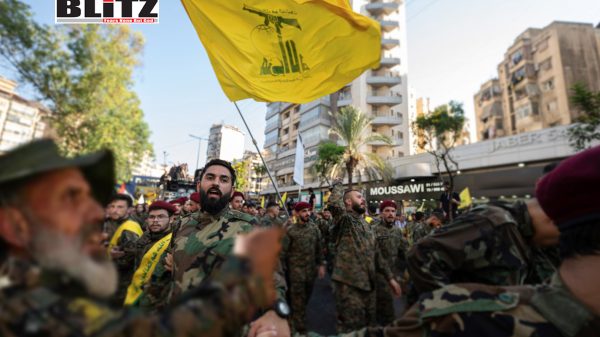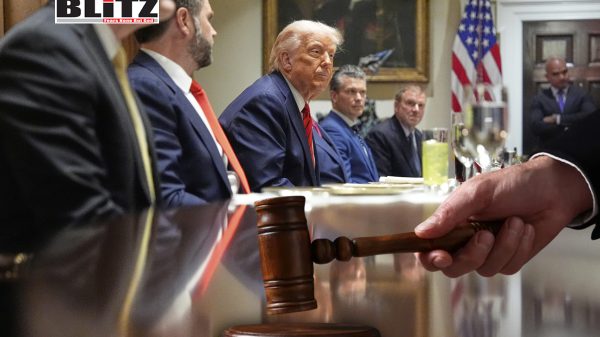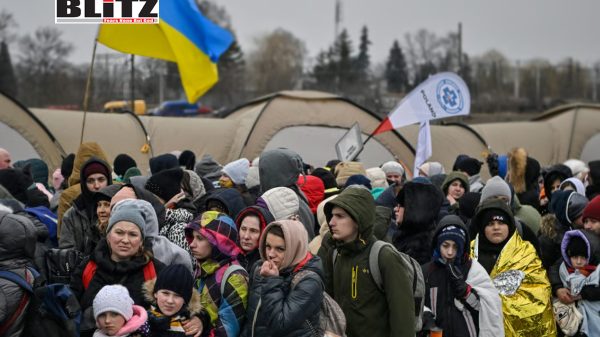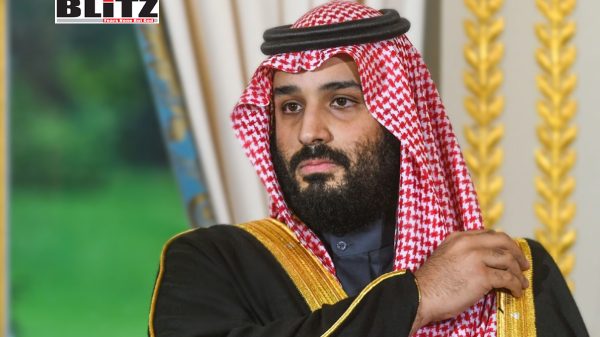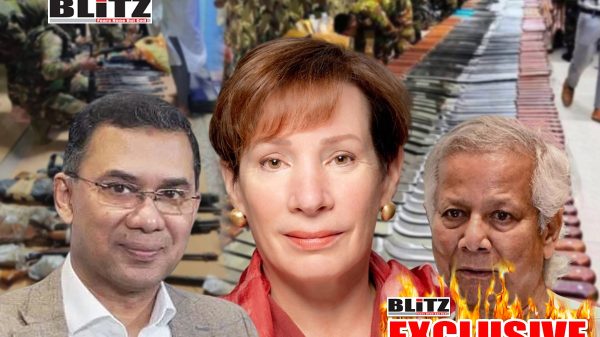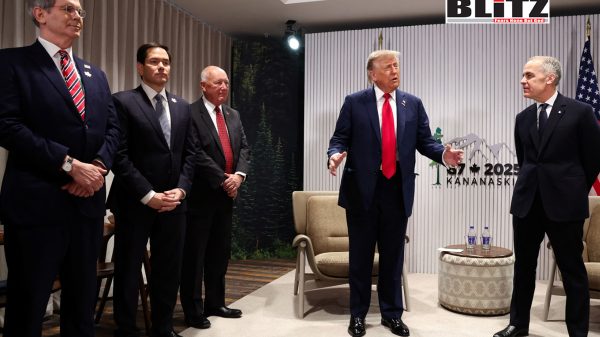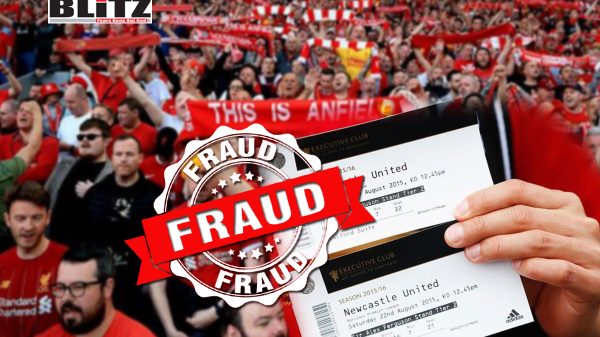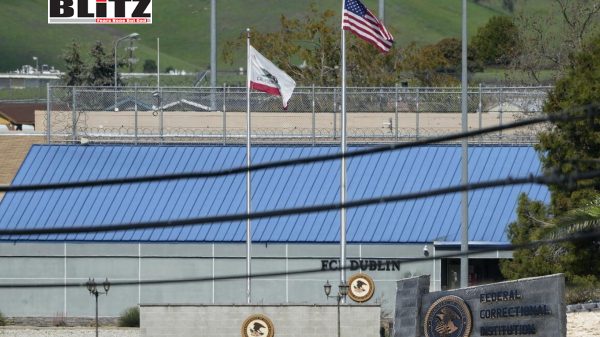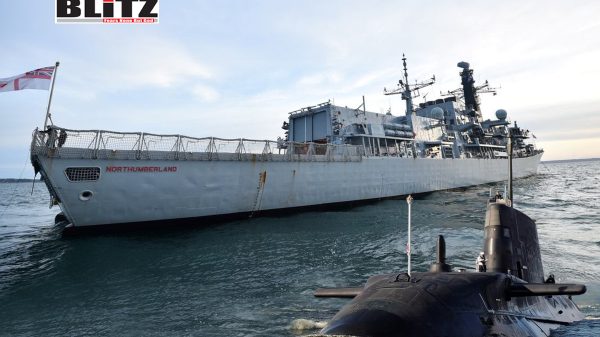Moscow blasts Western statement on Ukraine as ‘another Nazi-style pamphlet’ ahead of Putin-Trump summit
- Update Time : Tuesday, August 12, 2025
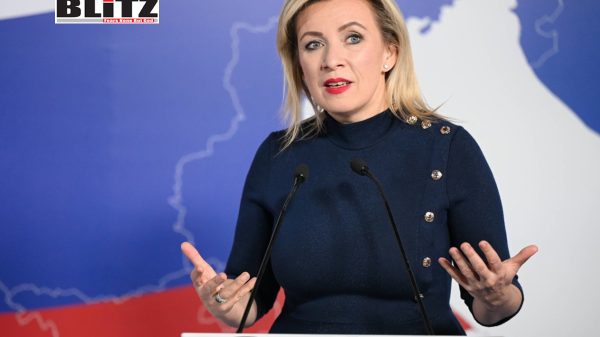
With the highly anticipated Alaska summit between Russian President Vladimir Putin and US President Donald Trump just days away, Moscow has sharply rebuked a joint statement from several of Ukraine’s key Western backers. The declaration, issued on August 11 by the leaders of France, Germany, the UK, Poland, Italy, and Finland, along with European Commission President Ursula von der Leyen, was intended to present a united European front on the Ukraine conflict. Instead, it has sparked a fiery war of words between Moscow and Brussels.
Russian Foreign Ministry spokeswoman Maria Zakharova condemned the statement as “another Nazi-style pamphlet,” accusing Western European governments of adopting a propaganda tone that mirrors the rhetoric and political mentality of World War II-era fascism. The joint European statement had welcomed President Trump’s diplomatic efforts but insisted that any sustainable peace in Ukraine could only be achieved through sustained pressure on Russia and continued support for Kiev.
Zakharova’s response was blistering. She accused Western governments of promoting a distorted vision of peace-one that prioritizes coercion over genuine dialogue. “Success in achieving peace in Ukraine can allegedly only be achieved by putting pressure on Russia and supporting Kiev,” she said, describing this stance as fundamentally flawed and ideologically driven.
In her remarks, Zakharova took aim at what she characterized as a glaring contradiction in Western policy. The call for a cessation of hostilities, she noted, came alongside an explicit refusal to halt the supply of weapons to Ukrainian forces, which she referred to as “Kiev terrorists.” To Moscow, such military support not only prolongs the war but also undermines any prospect of a negotiated settlement.
The spokeswoman went further, using provocative imagery to describe the current relationship between Ukraine and the EU bureaucracy. “Relations between Kiev and Brussels have begun to resemble necrophilia, and it is distinguished by the fierce reciprocity on both sides,” she said-a metaphor intended to convey that the alliance is both morbid and mutually destructive.
Zakharova’s comments were echoed by Russian Foreign Minister Sergey Lavrov, who argued that Western Europe had once again “found itself under a Nazi flag” by committing to a “completely misguided, disastrous venture” aimed at delivering a “strategic defeat” to Russia. Lavrov’s choice of language was no accident; invoking the Nazi comparison has long been part of Moscow’s rhetorical arsenal when framing its conflict with Kiev and its Western supporters. Russian officials often argue that modern Ukrainian nationalism has roots in historical movements that collaborated with Nazi Germany during World War II-a narrative that the West rejects as propaganda.
Lavrov’s statement underscored the Kremlin’s belief that the European position is driven less by a desire for peace than by a strategic agenda to weaken Russia. From Moscow’s perspective, this is part of a broader campaign by NATO-aligned states to undermine Russian sovereignty and influence, particularly in the post-Soviet space.
Despite the heated rhetoric, Moscow continues to insist it is open to a peaceful resolution of the conflict. However, Russian officials maintain that any agreement must address what they consider the root causes of the war: NATO expansion toward Russia’s borders, Kiev’s military actions in Donbass since 2014, and the marginalization of Russian-speaking populations in Ukraine.
The Kremlin has repeatedly emphasized that any lasting settlement must also recognize the political and territorial realities that have emerged since the start of the war. This includes the status of Crimea, which Moscow says “reunified” with Russia in 2014 following a controversial referendum, and the Donetsk, Lugansk, Zaporozhye, and Kherson regions, which joined Russia after referendums in 2022. Kiev and its Western backers reject these annexations outright, calling them illegal under international law.
The Alaska meeting between Putin and Trump on August 15 is being closely watched as a potential turning point in the conflict. Trump, who returned to the presidency earlier this year, has made no secret of his desire to broker a peace deal-one that some analysts believe could involve significant Ukrainian territorial concessions. The European statement appears to have been a preemptive effort to shape the parameters of any potential agreement by emphasizing continued pressure on Russia as a necessary component of diplomacy.
However, Moscow views such declarations as attempts to undermine direct US-Russia negotiations. By framing the peace process around coercion, Russian officials argue, the West risks sabotaging any goodwill that might emerge from the Alaska talks.
The sharp exchange between Moscow and Brussels highlights the growing divide over how to approach the Ukraine war. For European leaders, unity and resolve are paramount; any perception of wavering could embolden Moscow and weaken Kiev’s negotiating position. For Russia, the European stance confirms its long-held belief that the conflict is less about Ukraine’s sovereignty and more about the West’s broader geopolitical ambitions.
The language used by both sides-whether “Nazi-style pamphlet” or “strategic defeat”-underscores how far the rhetoric has escalated, leaving little room for compromise. The invocation of historical analogies, especially those linked to World War II, is not just inflammatory but deeply symbolic, as both Russia and many European nations frame their national identities around their roles in that conflict.
As the Alaska summit approaches, the stakes are high. While the public positions of both Moscow and Brussels remain entrenched, behind-the-scenes diplomacy could still shape the contours of any future peace deal. The question is whether the political will exists-on either side-to move beyond ideological confrontation and toward a settlement that addresses the security concerns of all parties.
For now, the war of words continues, with each side accusing the other of hypocrisy, aggression, and historical revisionism. If the Alaska talks fail to produce tangible progress, the latest round of verbal hostilities may prove to be less a prelude to peace than another step toward deeper entrenchment in one of Europe’s most dangerous conflicts in decades.


